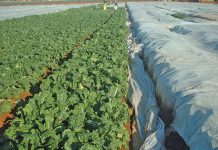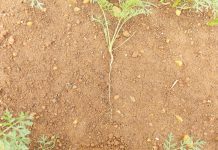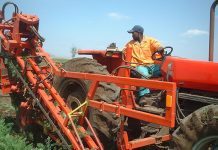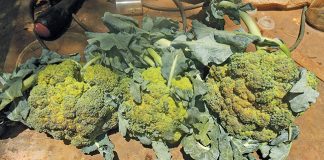Commissioned in 2013, it is the first of four such hubs to be built in Namibia. (Rundu in the north-east now has a twin hub in operation and the Windhoek facility is nearing completion.)
The OFPBH boasts about 3 500m² of trading floor, cold rooms with multiple level racking, a high- reach forklift to serve them, a ripening chamber, a quality control facility and a packing section. To the uninitiated, the OFPBH might look like a white elephant in the making. But one should be careful not to judge too soon. These ‘hubs’, as the Namibians like to call them, are part of a larger, long-term government plan.
Potentially lucrative
Namibia is highly dependent on food imports – mostly from South Africa – and the government wants to systematically reduce that dependence over a period of years. At present, local fresh produce retailers are required to source 41,5% of their produce locally. As Namibia’s farmers produce more fruit and veggies, that percentage will increase.
In addition, Namibia has identified Angola as a potentially lucrative buyer of fresh produce. I am told that Angolans flock to Namibia with their wallets bulging, so there is no reason why fruit and vegetables should not be enjoying some of that wealth. South African markets such as Joburg and Cape Town have been servicing Angola for ages and it makes sense that a percentage of that business can be supplied through the Namibian hubs. Like their SA market colleagues, the Namibians have learnt that ‘when Joburg Market sneezes, everybody else catches a cold’!
In for the long run
Namibia has set itself an enormous challenge with these hubs. It is going to take a long time – if ever – for them to become economically viable. I like to think Namibia’s government understands this and sees the hubs rather as an investment for the country and not just a money-making exercise. Despite the many challenges they face, the Namibians are tackling the markets with vigour. I wish them well.













